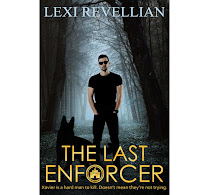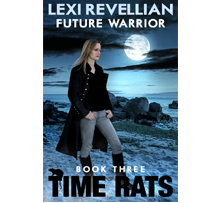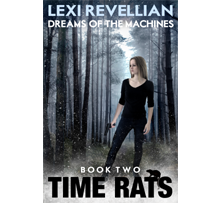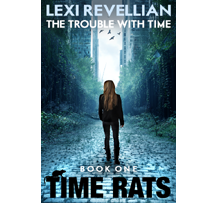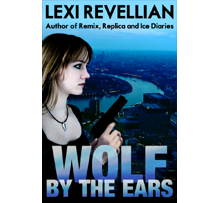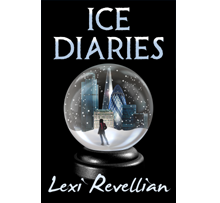Wednesday 26 June 2013
Fame, lasting and fleeting
Which would you rather: to be a rich and famous novelist during your lifetime, then sink into obscurity for ever, or struggle while alive and then have everlasting popularity and prestige? Galsworthy or Austen?
I doubt the best-selling vampire and zombie novels will be more than curiosities fifty years from now. Harry Potter just might become a classic, though in my opinion the later books are less entertaining than the early ones. Room, Before I Go To Sleep, and Gone Girl seem to me, gripping though they are, unlikely to last. What do you think? Nominations for lasting/non-lasting contemporary novels in the comments, please.
I hesitantly believe that long term, the public has excellent taste. Shakespeare is valued and Thomas Kyd, Christopher Marlowe, Ben Jonson, Francis Beaumont and John Fletcher all but forgotten. But ... a book has to be published, even if it doesn't sell well during the author's life, to have any hope of becoming lastingly popular. Paintings don't have this problem - see Van Gogh. Had Jane Austen's novels just been circulated among her family, she would be unknown today, to the great loss of the reading public. Which makes me wonder how many terrific books which failed to find a publisher in the last half-century languish in drawers or forgotten in attics, never to find their readers. Thanks to Jeff Bezos, this is far less likely to happen these days.
Tuesday 18 June 2013
Sex in novels - more! No, less!
After the inexplicable success of 50 Shades of Grey, some writers are making their romances more sexually explicit, or penning erotica to cater to what they perceive the market wants. (I stoutly maintain that erotica is in its own category, quite separate from other fiction, and different rules apply. For one thing, it's much easier to sell, so perhaps these authors are making a canny move.) As a reader, it's not for me, for much the same reason I don't like musicals; the actors keep stopping to sing instead of getting on with the story.
But while some categories are getting steamier, new chaste ones are popping up. I only heard of Amish Romance recently via Passive Guy's post Why Amish Novels Are Hot, but there's a lot of it about. You can recognize the genre as the covers generally show a young woman in one of those white bonnets with strings looking wistful. Author Sarah Stegall commented on its appeal:
"It's an under-served market. My mother-in-law is not Amish, but grew up in that country and is an avid reader of Amish romances. She says the appeal of such stories, for her and her friends, is the lack of sex and profanity. These ladies are very uncomfortable with currently published romance novels, which qualify (to her) as pornography. She likes courtship stories, sweet adolescent romance stories, and such. Her friends also like the emphasis on religion, rather than worldly values. And yes, all of these ladies read their Amish romances on Kindles."
 So there we go. I'm guilty myself of 'profanity' in my novels; I'm pleased that these days characters don't have to say 'mucking' as a makeshift alternative like Reg does in Mary Renault's excellent novel, The Charioteer. (On a side note, I cannot believe her dozy publishers have not released her books as ebooks. Or that the paperback has such a terrible cover.)
So there we go. I'm guilty myself of 'profanity' in my novels; I'm pleased that these days characters don't have to say 'mucking' as a makeshift alternative like Reg does in Mary Renault's excellent novel, The Charioteer. (On a side note, I cannot believe her dozy publishers have not released her books as ebooks. Or that the paperback has such a terrible cover.)
Just to confuse, there is also a steamy sub-genre of Amish romances, Gay Amish Romance. Something for every reader's taste.
While I was trawling the internet for illustrations for this post (the trouble I go to) I came across an ace site, Bad Romance Covers. Though not strictly relevant, I could not resist the cover on the right, When Dachshunds Ruled the Serengeti.
Now that's a title you wouldn't need to check to see if it had been used before...
But while some categories are getting steamier, new chaste ones are popping up. I only heard of Amish Romance recently via Passive Guy's post Why Amish Novels Are Hot, but there's a lot of it about. You can recognize the genre as the covers generally show a young woman in one of those white bonnets with strings looking wistful. Author Sarah Stegall commented on its appeal:
"It's an under-served market. My mother-in-law is not Amish, but grew up in that country and is an avid reader of Amish romances. She says the appeal of such stories, for her and her friends, is the lack of sex and profanity. These ladies are very uncomfortable with currently published romance novels, which qualify (to her) as pornography. She likes courtship stories, sweet adolescent romance stories, and such. Her friends also like the emphasis on religion, rather than worldly values. And yes, all of these ladies read their Amish romances on Kindles."
 So there we go. I'm guilty myself of 'profanity' in my novels; I'm pleased that these days characters don't have to say 'mucking' as a makeshift alternative like Reg does in Mary Renault's excellent novel, The Charioteer. (On a side note, I cannot believe her dozy publishers have not released her books as ebooks. Or that the paperback has such a terrible cover.)
So there we go. I'm guilty myself of 'profanity' in my novels; I'm pleased that these days characters don't have to say 'mucking' as a makeshift alternative like Reg does in Mary Renault's excellent novel, The Charioteer. (On a side note, I cannot believe her dozy publishers have not released her books as ebooks. Or that the paperback has such a terrible cover.)Just to confuse, there is also a steamy sub-genre of Amish romances, Gay Amish Romance. Something for every reader's taste.
While I was trawling the internet for illustrations for this post (the trouble I go to) I came across an ace site, Bad Romance Covers. Though not strictly relevant, I could not resist the cover on the right, When Dachshunds Ruled the Serengeti.
Now that's a title you wouldn't need to check to see if it had been used before...
Saturday 8 June 2013
Versions of reality
 |
| The railway behind my/Beth's flat in the snow |
Beth's flat in Replica is based on my flat, including the non-working entry phone so Beth has to open a window and lean out to see who has rung her bell. Beth Two's dash through the gardens on to the railway station describes the layout as it was when I wrote it, though the station is now larger. (Nothing in London stays the same for long.)
Chatting about Replica to the offspring's boyfriend, I asked him how he'd imagined Beth's flat. "I think of it as this one," he said. And it occurred to me, he was one of only a handful of readers who would have exactly the same picture in his head of Beth's home and Beth Two's escape as I did.
Of course, this doesn't matter at all. If an author has done his job properly, the right reader will be able to imagine the scene correctly, though with variations. I can work out when I read some of my favourite books from the settings that come to mind, borrowed from where I was living at the time. Quite unlike films, where we all picture the characters and settings as we have seen them on the screen.
It's strange to think of the thousands of different versions of my novels that play in people's heads, as each reader brings his or her unique experience of life to my fiction.
Saturday 1 June 2013
Draft2Digital and leaving KDP Select
When KDP Select started at the end of 2011, I was an early adopter. My books had sold very well on Amazon, while selling hardly any via Smashwords, so the decision was a no-brainer for me. And at the start of 2012 it enabled me to sell huge quantities of ebooks at a higher price than I'd been able to charge before, as well as making money from Kindle Owners' Lending Library (KOLL).
But what has it done for me lately? Over the past year, the benefits of KDP Select have dwindled, and Amazon has not yet offered anything to replace them. I'm not criticizing Amazon; Jeff Bezos runs his business extremely well, and has no obligation to promote my books for me. It's possible that Amazon no longer needs indie authors in the same way after the DoJ's judgement against the Price-Fix Six. I'm grateful for the opportunities Amazon has put my way, enabling me to prove there is a market for my writing and make quite a bit of money.
But though I expect most of my future sales still to come via Amazon, it may be time to branch out. Last week I came across a long article on Survivorship Bias, including this observation:
Lucky people tend to constantly change routines and seek out new experiences. The lucky try more things, and fail more often, but when they fail they shrug it off and try something else.
These days there is an alternative to Smashwords' clunky meatgrinder: Draft2Digital. Its site is classy, non-buggy and easy to use, its terms eminently reasonable. Support is fast and helpful. D2D's software converts your Word document into an ebook with a ToC and chapter breaks. Five of my six books reached the end of their three months in KDP Select yesterday, and I've now loaded them on Draft2Digital. Within the next week or two, they will go live on Barnes & Noble, Kobo and Apple's iBookstore.
I'm not expecting to sell much, at any rate initially, but I know from Statcounter that people are looking for epub versions of my novels, and now they will be able to buy them. I hope to be lucky - but if it doesn't work out, I'll try something else.
But what has it done for me lately? Over the past year, the benefits of KDP Select have dwindled, and Amazon has not yet offered anything to replace them. I'm not criticizing Amazon; Jeff Bezos runs his business extremely well, and has no obligation to promote my books for me. It's possible that Amazon no longer needs indie authors in the same way after the DoJ's judgement against the Price-Fix Six. I'm grateful for the opportunities Amazon has put my way, enabling me to prove there is a market for my writing and make quite a bit of money.
But though I expect most of my future sales still to come via Amazon, it may be time to branch out. Last week I came across a long article on Survivorship Bias, including this observation:
Lucky people tend to constantly change routines and seek out new experiences. The lucky try more things, and fail more often, but when they fail they shrug it off and try something else.
These days there is an alternative to Smashwords' clunky meatgrinder: Draft2Digital. Its site is classy, non-buggy and easy to use, its terms eminently reasonable. Support is fast and helpful. D2D's software converts your Word document into an ebook with a ToC and chapter breaks. Five of my six books reached the end of their three months in KDP Select yesterday, and I've now loaded them on Draft2Digital. Within the next week or two, they will go live on Barnes & Noble, Kobo and Apple's iBookstore.
I'm not expecting to sell much, at any rate initially, but I know from Statcounter that people are looking for epub versions of my novels, and now they will be able to buy them. I hope to be lucky - but if it doesn't work out, I'll try something else.
Subscribe to:
Posts (Atom)





